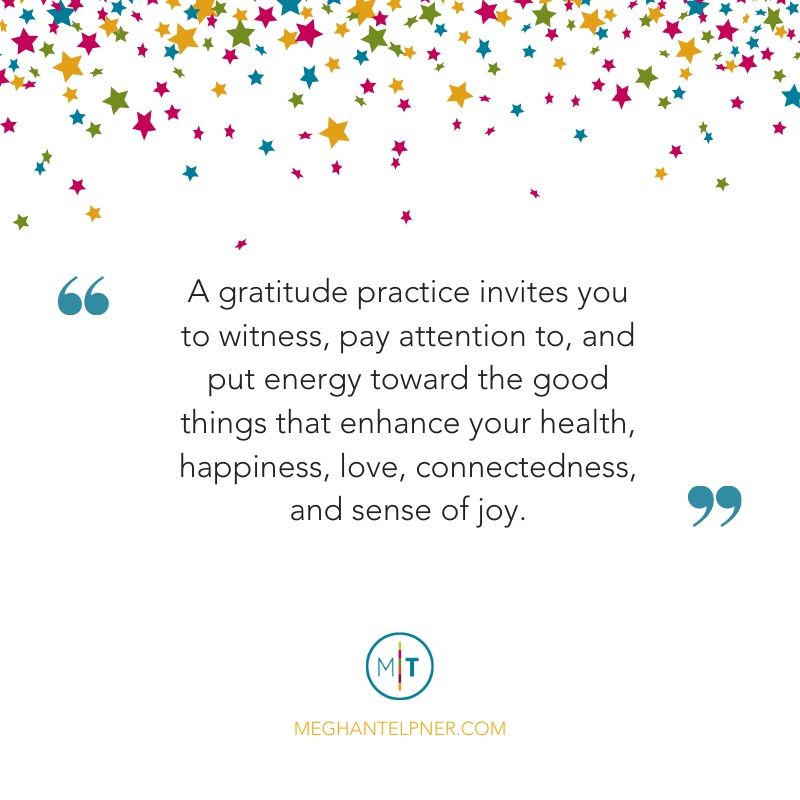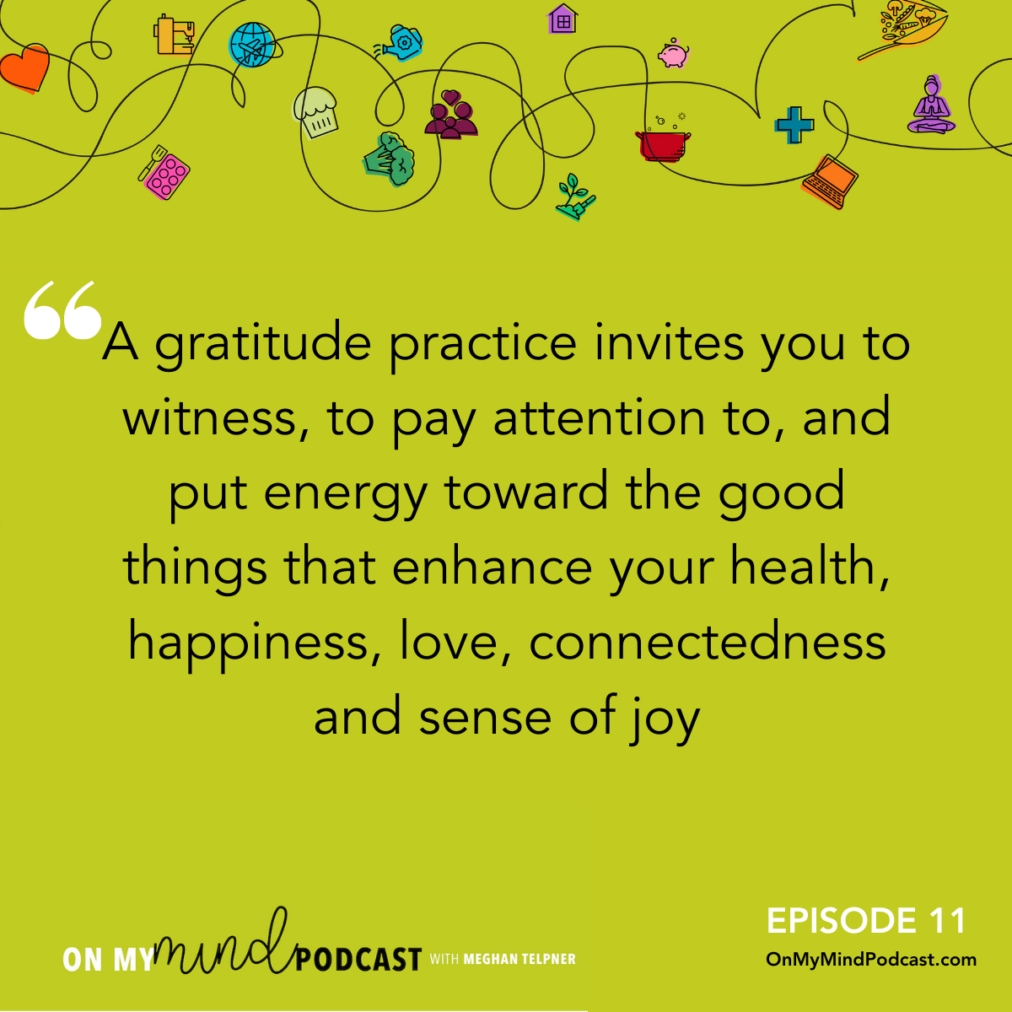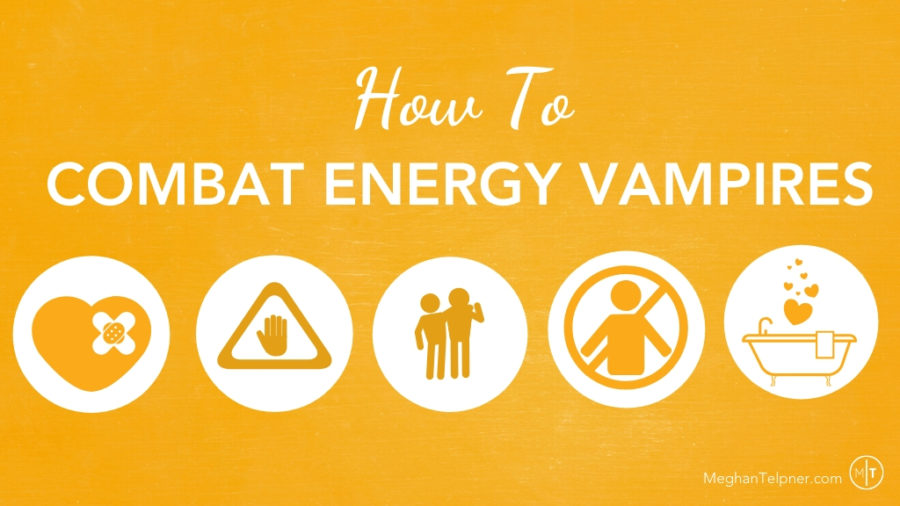Understanding Gratitude And How A Gratitude Practice Works

I’ve always known there were strong benefits associated with gratitude. We hear all the time, especially in the wellness world, about the power of gratitude. I thought I got it. I would say I was grateful all the time. You know, #gratitude and what now. But was I feeling it? And how did being grateful actually make life better? And not just for me but for everyone? This was the brain twister that took me time to figure out, and also to experience.
Gratitude lesson number one: Practicing gratitude doesn’t directly make good things happen in our lives. The practice invites us to witness, pay attention to, and put energy toward the good things that enhance our health, happiness, love, connectedness, and sense of joy. Here’s the magical bit- when we direct our focus on the good, we start to notice more good. And then it’s like a flood gate opens and we find ourselves seeing more and more goodness and this, ultimately impacts the vibration in which we operate, and also how we see the world. Gratitude isn’t dramatic. Practicing gratitude doesn’t mean we automatically start pooping trails of sparkles. It’s possible that nothing has dramatically changed in our circumstance, finances, relationships, or work. But our mind has changed, what we focus on has changed, and so our perception and interpretation of events changes. We see more goodness.
Gratitude lesson two is that we have to practice it. A lot. You’ve likely seen quotes pop up on your Instagram feed, and have maybe ventured into the world of books on personal development. You may have attended a yoga class that ended with a meditation on gratitude. You’ve been invited to practice gratitude for your health, your friends, your family, your dog, and your dinner.
Sometimes a gratitude practice comes easy like when you’re sipping kombucha margaritas beachside in a tropical paradise, or your kids decide to keep themselves busy and let you sleep in until the midday hour of 8 am. For most of us though, a gratitude practice is anything but easy. When we’re making dinner (no time to be grateful for the food you have in your fridge!), we’re late for an appointment (no time to be grateful that we are in demand and have things to do!), we’re dealing with tax season (too many BPA-coated receipts to be grateful that you earned money!), we’re scraping ice off the car in arctic temperatures (it’s too cold to be grateful that the planet hasn’t fully melted yet!), or any other number of things that draw our attention away from all that we have in our lives.
A gratitude practice is constant. It’s something we have to exercise like a muscle and keep at it. More on this below.
What’s Gratitude All About?
I call gratitude ‘Vitamin G’ and I consider it essential for health. A regular intention of love, hope and faith can change the way we perceive our lives and the greater world. It’s a bit like healthy eating. If we load our diet up with great food prepared from scratch, there becomes less risk (and less stomach space) for us to indulge in the negative stuff. If we fill our evenings with activities that make us feel inspired, creative and calm, we have less time to binge-watch crime dramas on Netflix.
In the past, I thought that the gratitude muscle worked like the law of attraction. You know, like the more you experienced feelings of gratitude the more you were given to be grateful for. Not true – not really. I’ve since realized that Vitamin G works by inviting us to focus on the greatness in our lives; the silver linings, if you will. And the more you focus on the blessings, the less likely you are to start listing off the bad stuff. We all have the bad stuff, the challenges, but if we can find the bright side, it’s all so much easier to take.
I make it a practice to get my daily dose of Vitamin G. Josh and I always take a moment before we eat to express gratitude for our food. We regularly express gratitude for our health, our families, our son, and each other. We are grateful to have access to clean water, food, a garden in the backyard, and the work we get to do.
The Three Main Components of Gratitude
- Love: Being open to giving and receiving love boosts feelings of belonging, community, and kindness. This can be between partners, friends and family, but also for spaces, nature, art, books, music, and your work. Finding and cultivating love in any situation strengthens that gratitude muscle and shifts you into a positive mind state, which in turn boosts mood, immune health and shifts you into the parasympathetic nervous system where we are able to rest, digest and heal.
- Hope: No matter how challenging or bleak things may seem in the present, maintain the hope that it will change and you will be more inclined to take action to put those changes into fruition. You know that saying, “This too shall pass”? It’s true. It always does – the good and the bad.
- Faith: There’s no one religion you need to join or one belief system that will give you more faith than any other. The key here is having confidence that there are powers and energies out there greater than your own. And there are. We are each specks in this grand universe that is ever evolving, and whether you call that force God, or Allah, or the universe, or spirit, or mother nature, there is something out there and when we operate with love and hope, practicing gratitude, you can also feel supported knowing there is something greater than us that is conspiring in our favour.
In this short and sweet video, I share how gratitude actually works to bring abundance into your life, and describe what my daily gratitude practice is and why it is so incredibly powerful for me.

Cultivating a regular practice of gratitude is great for our mental and physical wellbeing.
How A Gratitude Practice Improves Your Wellbeing
Gratitude gives you a better outlook on life
In one research study, participants were asked to keep gratitude journals and write down five things they were grateful for each week, while another group wrote about five things that hassled them. After 10 weeks, the group who practised gratitude felt happier about their lives, reported fewer health complaints, and spent more time exercising. It makes perfect sense, doesn’t it? The better our outlook on life, the more we’ll make the effort to stay healthy.
Gratitude improves our relationships
What’s the secret to a long-lasting, epic romance? Apparently, it’s gratitude. Wide cross-section research shows that people who feel more appreciated by their partners are more likely to stay committed. So don’t forget to say thank you to your sweetie for doing the dishes, or the laundry, or packing you a delicious lunch. In fact, why don’t we apply this to all of our relationships? Showing gratitude to our family, friends, coworkers, and strangers can only benefit us all.
Gratitude lowers our stress levels
After learning gratitude techniques, research participants had a 23% reduction in cortisol, our major stress hormone, and a huge boost in DHEA, a precursor to many of our sex hormones. Reduced stress means improved digestion, sleep, immunity, and blood sugar levels. All of that sounds pretty good to me. (Need some help fighting stress? Check out these handy tips.)
Gratitude helps you sleep better
In this small study, researchers found that grateful folks reported better quality and longer sleep. Try thinking about a few things you’re grateful for before you go to bed tonight, and see what happens.
Gratitude makes teenagers more bearable! It’s a miracle worker :)
Is there anyone more self-involved and unappreciative than a teenager? Not necessarily. Students who were asked to count their blessings reported feeling more grateful, optimistic, and satisfied at school. Perhaps this is another tool educators could use in the fight against bullying.

How to Create Your Gratitude Practice
Gratitude is a practice, and so the best way to cultivate it is to practice.
Practice in the morning
Take some time when you wake up or while brushing your teeth, in the shower, before you eat, sitting in quiet meditation, driving in your car, sitting on the bus or whenever you can take five or ten minutes to give some goodness to yourself and to the world by contemplating the blessings in your life. You might even choose to create a ritual around this – something that will ground you in a little and help you be present with the positive thoughts and feelings.
Write it down
Keep a gratitude journal of all of the blessings in your life. Nothing in this world is too small to be grateful for. Not a journaller? Make a list in a notebook. Use a scrap of paper. Make an excel spreadsheet, if that’s your thing. Just get it down so you can read it when you’re feeling grumpy and depressed.
Keep reminders
Post a few things from your gratitude list on your wall, or set an email or phone message that reminds you to be grateful. You could also use something tactile – such as a gratitude stone from the beach on your desk that you can hold in your hand and think about why you’re grateful.
Recruit a gratitude partner
It’s always easier to make a lifestyle change when you’ve got support by your side. Get a friend or loved one to regularly ask you what you’re grateful for, or to remind you of your blessings when you’re complaining about your life.
Accept the bad days for what they really are
Wouldn’t it be great if every day was perfect and awesome? But that’s just not life. Here’s what I know for sure and I hope you do too: every challenge is an opportunity to learn, grow, evolve, and discover. Sometimes stress can be a good thing. It’s what helps things to change. If we look at the challenging moments as opportunities to observe and find new ways to respond, we might be able to go so far as to find the blessings in what might otherwise be a negative experience.
Be of service
Most of the time, we don’t have a clue about what we’re capable of giving. Being of service might mean volunteering somewhere or making donations, but it doesn’t have to be that formal or official. Most of us can easily be of service to others simply by doing what we’re naturally best at: being kind. Smiling, saying hello, holding a door, carrying a parcel – there are many simple everyday ways we can be of service.
Want to go further? You know that thing you love to do and are really awesome at? Do it more! Share it, perform it, teach it, photograph it, sing it, play it, write it. Share your area of brilliance and, without a doubt, you will be embodying service, love, faith, hope, and as such, the gratitude will overflow.
If you have any strategies to help you stay on the bright side of the road, please share!
On My Mind Episode 11: Understanding Gratitude And How A Gratitude Practice Works

Subscribe today on your favourite podcast app and never miss an episode.

Free Resource Library
Enjoy more than 40 downloadable guides, recipes, and resources.
























Thank you for writing about the importance of gratitude! After journaling for years and recognizing the impact it was having, I created a line of guided gratitude journals. Great read!
Great article and tips! And an unrelated question for you: where oh where did you find that orange chair? It’s fabulous!